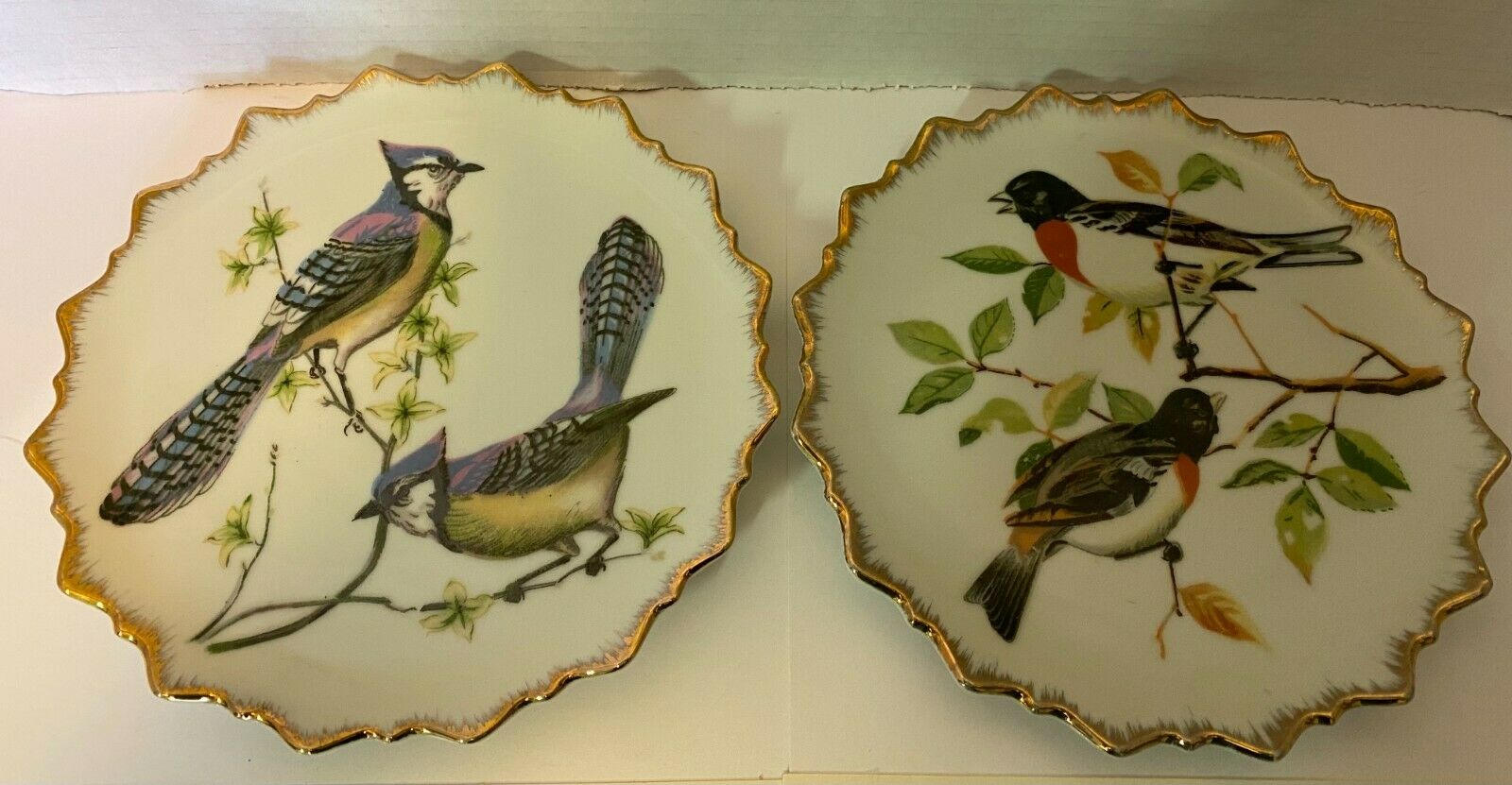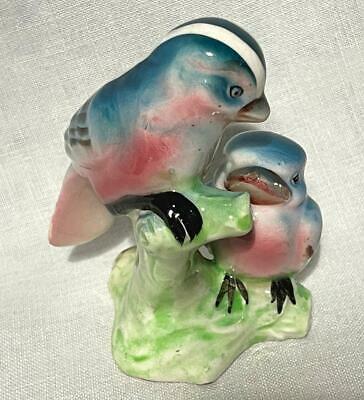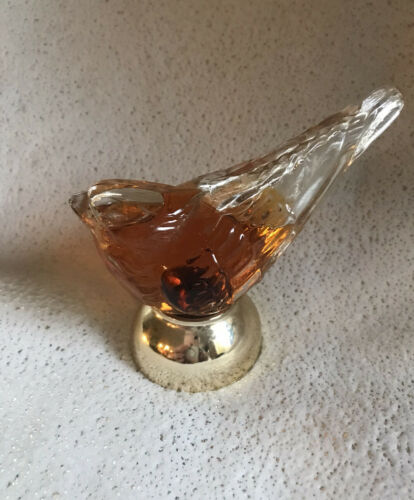-40%
1972 LITHO PRINT ART RAY HARM LAPIS LAZULI BUNTING BLUE SONG BIRD AUDUBON STYLE
$ 55.44
- Description
- Size Guide
Description
1972 LITHO PRINT ART RAY HARM LAPIS LAZULI BUNTING BLUE SONG BIRD AUDUBON STYLEGREETINGS, FEEL FREE
TO
"SHOP NAKED."
©
We deal in items we believe others will enjoy and want to purchase.
We are not experts.
We welcome any comments, questions, or concerns.
WE ARE TARGETING A GLOBAL MARKET PLACE.
Thanks in advance for your patronage.
Please Be sure to add WDG to your
favorites list
!
NOW FOR YOUR VIEWING PLEASURE…
LAZULI BUNTING
BY RENOWNED ARTIST
RAY HARM
SIGNED BY THE ARTISAN
LITHOGRAPH ART
AUDUBON STYLE
FRAMED / MATTED UNDER GLASS
MEASURES ABOUT 20" X 16"
ACTUAL IMAGE IS NEAR 13" X 10"
-----------------------
FYI
Ray Harm is the co-founder of the modern limited edition print industry in America and has been a nationally known wildlife artist since the 1960's. This has been documented by the Filson Historical Society' quarterly journal 4/98 Vol.72 No.2.
His parents were both concert violinists in the 1920's so music has been a significant influence in his life and he learned several instruments from an early age. Born in the mid twenties in West Virginia (also his father's native state) Ray's childhood was imbued with his fathers later work and study as an herbalist and naturalist digging and selling herbs on the pharmaceutical market. The stock market crash in '29 had forced his father off of the concert tour and back to West Virginia to an earlier interest in herbal medicine. The young man was strongly tutored in the ways of nature by his woodsman/naturalist father.
In his mid teens he went west to work as a cowboy on cattle ranches, rode the rodeo circuit in the bull and bronc riding events and when he won enough to purchase a roping horse and trailer, competed as a calf roper. He even satisfied a dream that many youngsters have by working with the Ringling Brothers and Barnum and Baily circus, then a tent show, training horses. Always he sought the outdoor life and work with animals.
Three years of Navy service made him eligible for the GI Bill of World War II and later, after more cowboying on the ranches, he chose Art School in 1948. As he puts it "at least some kinda schooling would make my mom proud." Proud indeed, with only six grades of public school, today he holds Honorary Doctorate degrees from six colleges and Universities. Making a living as a wildlife artist in the early 1950's was not easy! This was when limited edition reproduction prints, (as we know them today), did not yet exist and selling original fine art paintings, one by one, was a very difficult way to make a living, especially when just out of art school and unrecognized. It was a struggle for some nine years as he drew heavily from his earlier "roustabout" experiences to support his family, training horses, digging ditches on construction jobs and driving truck while trying to establish himself as an artist.
By 1961 Ray had almost given up when he met Wood Hannah, a Louisville businessman and art collector. Hannah became personally interested and together in 1962 they founded a publishing company that was the beginning of the Limited Edition print industry that opened a market for artists everywhere. This market today supports thousands of artists through the medium of Limited Edition prints and Ray is proud of this. The public acceptance of Ray Harm wildlife prints in an ensuing collection, introduced in Kentucky, spread rapidly from coast to coast. He was in demand as a lecturer, wrote a popular weekly nature column and authored two illustrated books, but his paintings of wildlife remained primary. His pictures are appreciated for being from living animals and wildflowers, sketched on location, not copied or traced photographs (which is so commonly done today). All this coupled with his extensive knowledge of the subjects he paints, he feels, is more the essence of fine art as opposed to commercial illustration.
Ray has always been physically close to wildlife, since in his lifetime he has always lived rural. He lives with his wife Cathy on their H Rafter Ranch in Arizona. Antelope, Bear, Cougar, Bighorn Sheep, Javelina and a profusion of the bird life of southern Arizona is at his beck and call. His studio is on the ranch and is always open to interested people by appointment where he is happy to show original works, discuss painting, commissions and of course chat about art, wildlife, horses and cattle if the subject suits.
----------------
The Lazuli Bunting (Passerina amoena) is a North American songbird named for the gemstone lapis lazuli.
The male is easily recognized by its bright blue head and back (lighter than the closely related Indigo Bunting), its conspicuous white wingbars, and its light rusty breast and white belly. The color pattern may suggest the Eastern and Western Bluebirds, but the smaller size (13–14 cm or 5–5.5 inches long), wingbars, and short and conical bunting bill quickly distinguish it. The female is brown, grayer above and warmer underneath, told from the female Indigo Bunting by two thin and pale wingbars and other plumage details.
The song is a high, rapid, strident warble, similar to that of the Indigo Bunting but longer and with less repetition.
Lazuli Buntings breed mostly west of the 100th meridian from southern Canada to northern Texas, central New Mexico and Arizona, and southern California. On the Pacific coast their breeding range extends south to extreme northwestern Baja California. They migrate to southeastern Arizona and Mexico. Their habitat is brushy areas and sometimes weedy pastures, generally well-watered, and sometimes in towns.
These birds eat mostly seeds and insects. They may feed conspicuously on the ground or in bushes, but singing males are often very elusive in treetops.
This bird makes a loose cup nest of grasses and rootlets placed in a bush. It lays three or four pale blue eggs. In the eastern and southern part of its range, it often hybridizes with the Indigo Bunting.
(THIS PICTURE FOR DISPLAY ONLY)
---------------------------
Thanks for choosing this auction. You may email for alternate payment arrangements. We combine shipping. Please pay promptly after the auction. The item will be shipped upon receipt of funds. WE ARE GOING GREEN, SO WE DO SOMETIMES USE CLEAN RECYCLED MATERIALS TO SHIP.
Please leave feedback when you have received the item and are satisfied. Please respond when you have received the item.
*****
5*'s
*****
If you were pleased with this transaction, please respond with all 5 stars! If you are not pleased, let us know via e-mail. Our goal is for 5-star service. We want you to be a satisfied, return customer.
Please express any concerns or questions. More pictures are available upon request. The winning bid will incur the cost of S/H INSURED FEDEX OR USPS. See rate calculator or email FOR ESTIMATE. International Bidders are Welcome but be mindful if your country is excluded from safe shipping.
Thanks for perusing
THIS
and
ALL
our auctions.
Please Check out our
other items
!
WE like the curious and odd.
BUY, BYE!!
i
Track Page Views With
Auctiva's FREE Counter














